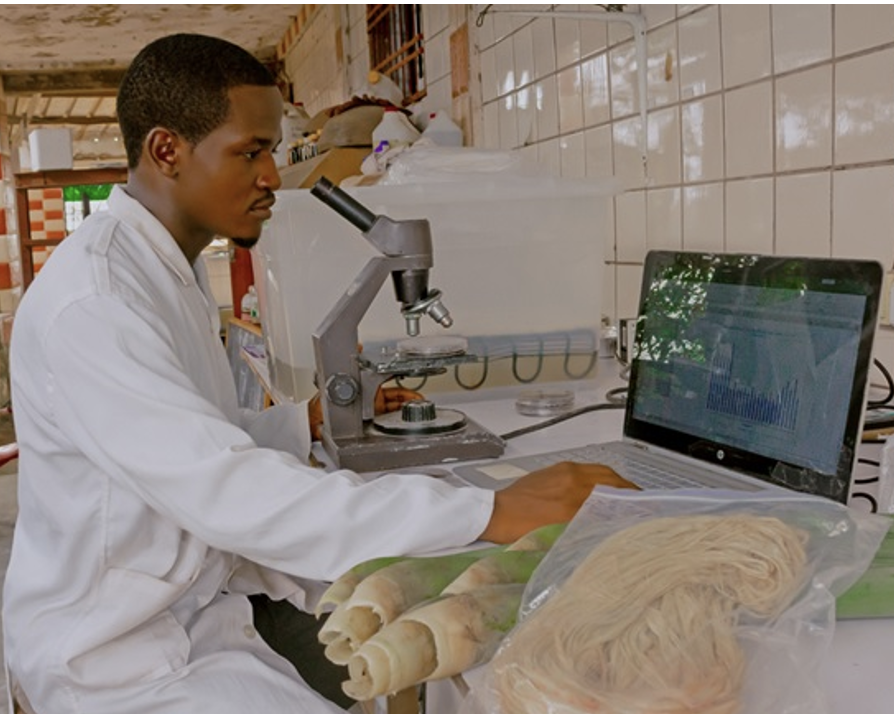Growing up in Southern Cameroon, he earned his Technical Teaching Degree (DIPET II) in Mechanical Design in 2022 from the Higher Teacher Training College (ENSET) at the University of Douala. Currently pursuing a Master’s (M2R) in Research since May 2023, he focuses on developing eco-friendly construction materials from Cameroonian plant biomass. His research offers sustainable solutions for cleaner construction and a more environmentally friendly environment.
Glass fiber, wood fiber, and sisal fiber are commonly used as reinforcement materials in the manufacture of plasterboard for buildings, but they present environmental challenges. Glass fiber, produced from silica, is a non-renewable resource, and the production of wood fiber leads to deforestation and requires the use of harmful products. Sisal fiber is imported into Cameroon and widely used in the plaster industry. Faced with these issues, researchers are exploring locally available tropical fibers. Pineapple leaf waste, generated in abundance in Cameroon, presents an opportunity for valorization. It can be used as a fiber source to reinforce biocomposites. However, the industrialization of fiber-reinforced plasterboard (FRG) requires a thorough understanding of degradation mechanisms. This project aims to assess the impact of moisture and fungi on the performance of FRGs made with pineapple fiber bundles. The samples will be characterized through bending tests, exposure to fire, microscopy, and infrared spectroscopy. By contributing to the achievement of United Nations goals, specifically responsible consumption and production (SDG12) and climate action (SDG13), this project proposes an innovative solution by using local resources to create sustainable building materials.
